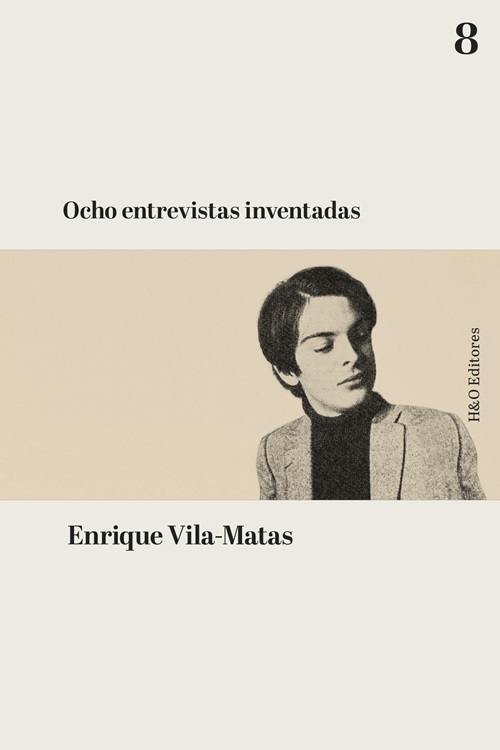- Books
- 24 de October de 2024
- No Comment
- 6 minutes read
Ocho entrevistas inventadas (Interview with the author)

Interview with Enrique Vila-Matas, Master of Narratives
Ocho entrevistas inventadas



The HyO publishing house has recently released a remarkably singular book by Enrique Vila-Matas: Ocho entrevistas inventadas, a compilation of previously scattered texts that, as the title suggests, consists of interviews the author invented in an unprecedented exercise of journalistic fiction. For instance, in July 1968, under the pseudonym Mary Holmes, his now-legendary fictitious interview with Marlon Brando was published in Fotogramas. In the cases of Anthony Burgess and Cornelius Castoriadis, Vila-Matas approached them with the interviews already drafted, ostensibly to save time…
What would you ask Marlon Brando today?
Well, I am aware that he is deceased, but nevertheless, I would ask him whether he believes that language does not snare us in all the same traps, that immense web of deceptively well-trodden paths that mislead us with their apparent navigability.
Who was Mary Holmes? Was she a pleasant person?
It appears she was someone who, at the time of her worldwide exclusive with Brando, fancied herself as Lizzie Doten, the writer and medium from Massachusetts who, at the turn of the last century, wrote a poem to Life and another to Love under the direct influence of the purported spirit of Shakespeare. Upon discovering this, the only detail I have ever known about her, I congratulated myself on my intuition in distancing myself from the self-important content her interview must have surely contained.
How did you approach writing Historia abreviada de la literatura portátil (1985)?
By disregarding the fact that I was engaging in radical fiction. In fact, I worked in much the same way as I did in 1968 when I began the series of invented interviews. I was completely convinced of the truth in what I was recounting.
What was the writing process for Montevideo (2022)?
The process was identical. I was firmly convinced that I was narrating a journey I had undertaken to Montevideo, where I encountered an experience that demanded to be written. This experience involved investigating the eerie Room 206 at the Hotel Cervantes, where, in 1954, Julio Cortázar repeatedly heard the cries of a child.
What is fiction?
It is impossible to generalise because each time I have written fiction, it has been very different from the previous one. Do you remember when it was considered crucial to have a theory behind fiction writing? The French magazine Tel Quel devoted countless pages to this issue. They believed that theory was a coherent set of methods that allowed one to act or comprehend the world. However, when they approached Robbe-Grillet, I found his response quite amusing, as he told them that, in reality, theory did not exist in his work because each of his novels constituted its own theory and, in a sense, dismantled it.
What is a novel?
The same principle applies. It is impossible to generalise.
And an interview?
It is something in which one asks questions to gain knowledge, and at times, for more obscure reasons that may be unrelated to the pursuit of knowledge.
Do you have a favourite among all your works? Which would you choose in the event of a nuclear holocaust?
All my works—both the good and the bad—are stored in a bunker in the North Pole, so I shall leave the decision regarding my best work to the extraterrestrials, who may perhaps understand it better than the inhabitants of Earth.
If I were to invent an interview impersonating your voice, what would you like me to say on your behalf?
If that were to occur, I would like to say that you have a complex akin to that of Lizzie Doten.
Book title: Ocho entrevistas inventadas
Author: Enrique Vila-Matas
ISBN: 978-84-128089-0-2
Publisher: H&O Editores
Language: Spanish
Number of pages: 114
Publication date: 2024
Source: educational EVIDENCE
Rights: Creative Commons

